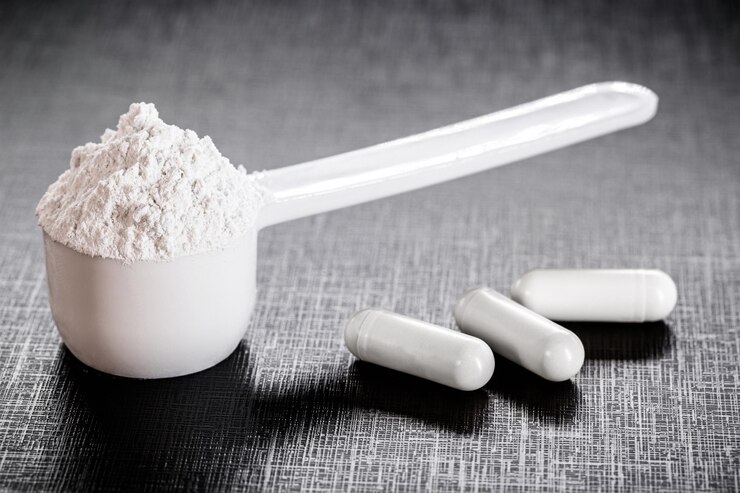In the world of fitness and athletic performance, individuals are constantly seeking ways to optimize their training routines and enhance their endurance. One key aspect of achieving peak performance is understanding how the body utilizes different energy sources during intense workouts. Dextrose, a simple sugar derived from corn, has gained popularity as a supplement to fuel the body during high-intensity exercises. In this article, we will delve into the science behind dextrose supplementation and how it effectively supports energy production during intense workouts.
Understanding Dextrose
Dextrose, also known as glucose, is a monosaccharide that serves as a primary source of energy for the body. It is quickly absorbed into the bloodstream, making it an ideal choice for individuals looking to replenish energy levels rapidly. Dextrose can be naturally found in various foods, including fruits and honey, but it is also available in supplement form. Dextrose supplements are commonly used by athletes and fitness enthusiasts to enhance performance and recovery.
The Role of Dextrose in Energy Metabolism
During intense workouts, the body’s energy demands increase significantly. To meet these demands, the body relies on various energy systems, with the glycolytic system being crucial for short bursts of high-intensity activity. Dextrose plays a vital role in this system by providing a quick and easily accessible source of glucose.
When you consume a dextrose supplement, the glucose is rapidly absorbed into the bloodstream, causing a spike in blood sugar levels. This spike triggers the release of insulin, a hormone that facilitates the uptake of glucose by cells, including muscle cells. The muscles then use this glucose to produce adenosine triphosphate (ATP), the primary energy currency of cells.
Moreover, dextrose can help replenish glycogen stores in the muscles and liver. Glycogen serves as a storage form of glucose and is essential for sustained energy during prolonged physical activity. By replenishing glycogen stores, dextrose supplementation can delay the onset of fatigue and improve overall workout performance.
Timing and Dosage of Dextrose Supplementation
To maximize the benefits of the Medical Dextrose Overview supplementation, timing and dosage are crucial factors to consider. Consuming dextrose before or during a workout can provide a rapid source of energy when it is needed the most. Pre-workout supplementation ensures that glucose levels are elevated, allowing for improved performance from the start of the exercise session.
The recommended dosage of dextrose may vary depending on factors such as body weight, exercise intensity, and individual tolerance. Generally, a dosage of 15 to 30 grams of dextrose before and during workouts is commonly suggested. It’s essential to start with a lower dosage and gradually adjust based on personal response and energy requirements.
Combining Dextrose with Other Supplements
While dextrose can be effective on its own, combining it with other supplements can enhance its impact on workout performance and recovery. One popular combination is the Dextrose Essentials Guide with branched-chain amino acids (BCAAs). BCAAs are essential amino acids that aid in protein synthesis and muscle recovery. The synergistic effect of dextrose and BCAAs can provide a comprehensive solution for both energy support and muscle repair during and after intense workouts.
Additionally, some athletes choose to combine dextrose with creatine, a compound that helps replenish ATP stores in the muscles. Creatine and dextrose work together to support energy production and enhance strength and power during resistance training and high-intensity activities.
Benefits of Dextrose Supplementation
- Rapid Energy Boost: Dextrose provides a quick and easily accessible source of energy, making it ideal for activities that require immediate bursts of power and endurance.
- Improved Endurance: By replenishing glycogen stores, dextrose supplementation can enhance endurance, allowing individuals to sustain high-intensity efforts for longer durations.
- Enhanced Recovery: Consuming dextrose post-workout can accelerate glycogen replenishment and reduce muscle protein breakdown, promoting faster recovery.
- Reduced Fatigue: Dextrose can help delay the onset of fatigue by providing a constant supply of glucose to the muscles during prolonged exercise.
- Muscle Preservation: The insulin response triggered by dextrose helps shuttle nutrients into muscle cells, preventing muscle breakdown and promoting muscle preservation.
Considerations and Precautions
While dextrose supplementation can offer significant benefits, it’s essential to consider individual needs and potential drawbacks. Individuals with diabetes or insulin resistance should consult a healthcare professional before incorporating dextrose supplements into their routine. Monitoring blood sugar levels and adjusting dosage accordingly is crucial for those with pre-existing conditions.
Conclusion
In the realm of sports nutrition, understanding how different supplements impact the body’s energy systems is key to optimizing performance. Dextrose supplementation, with its ability to rapidly elevate blood glucose levels and support energy production, has emerged as a valuable tool for athletes and fitness enthusiasts. When used strategically in conjunction with proper nutrition and hydration, dextrose can contribute to improved endurance, reduced fatigue, and enhanced recovery, ultimately helping individuals push their limits and achieve their fitness goals. As with any supplementation, it’s crucial to approach dextrose use with knowledge, moderation, and consideration of individual health factors.


